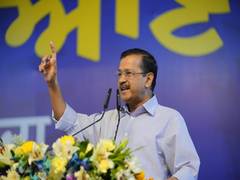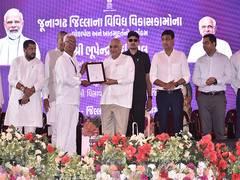Excise PMLA Case: Delhi HC grants regular bail to 2 businessmen; now all accused get bail in ED case
New Delhi [India], September 17 (ANI): The Delhi High Court on Tuesday granted regular bail to businessmen Amit Arora and Amandeep Dhall in a case related to the Prevention of Money Laundering Act (PMLA), which was being investigated by the Enforcement Directorate (ED). Senior Advocate Vikas Pahwa appeared for Amit Arora in the matter while Advocate Tanveer Ahmad Mir represented Businessman Amandeep Singh Dhall in the Court.
This development means that all accused individuals in this particular ED case have now been granted bail.
The case involved allegations of money laundering, and the ED has been probing the financial transactions of several individuals. The bail of Arora and Dhall signifies a legal relief for the accused, though the broader legal proceedings in relation to the case may still continue.
Amit Arora, the director of Gurugram-based Buddy Retail Pvt Ltd, and Amandeep Singh Dhall, the director of Delhi-based Brindco Sales Private Limited, have been key figures in the money laundering case being investigated by the Enforcement Directorate (ED) under the Prevention of Money Laundering Act (PMLA).
Amit Arora has been under investigation due to his alleged involvement in a larger money laundering probe tied to the Delhi Excise Policy case. He had been granted interim bail on medical grounds, and the upcoming decision will determine whether this interim relief is converted into regular bail.
In the Central Bureau of Investigation (CBI) probe, Amit Arora, the director of Buddy Retail Pvt Ltd, was not arrested. The CBI filed a chargesheet against him without taking him into custody. Filing a chargesheet without arrest is a procedural step often taken when authorities believe there is sufficient evidence to proceed with prosecution, but they do not consider the accused a flight risk or a danger to the investigation.
On September 3, 2024, the Delhi High Court reserved its order on the bail plea of Amandeep Singh Dhall in a case related to the Enforcement Directorate’s investigation under the Prevention of Money Laundering Act (PMLA).
In addition to this, Dhall’s bail in a separate case being investigated by the Central Bureau of Investigation (CBI) is currently under review by the Supreme Court of India.
Earlier, in June 2024, the Delhi High Court had denied him bail in the CBI case, which adds to his legal challenges. The CBI case pertains to related financial irregularities or corruption charges, complementing the ED’s investigation under PMLA.
Senior Advocate Dayan Krishnan, representing Amandeep Dhall, argued on the grounds of parity, stating that individuals like Manish Sisodia, K Kavitha, and Vijay Nair, involved in the same case, have been granted bail by the Supreme Court. Krishnan highlighted that the trial is expected to be lengthy and that Dhall, along with the other accused, has already been in custody for several months.
Advocate Vivek Gurnani, representing the Enforcement Directorate (ED), opposed Amandeep Dhall’s bail plea. He argued that Dhall is accused of specifically influencing witnesses and attempting to bribe and affect the investigation while in custody.
Gurnani highlighted that there is substantial digital evidence and witness statements supporting these allegations. He contended that the delay in the trial is attributable to Dhall’s actions, which distinguish his case from those of other individuals granted bail.
Amandeep Dhall was arrested on March 1, 2023, by the Enforcement Directorate (ED) under the Prevention of Money Laundering Act.
The ED alleged that Dhall, along with others, was involved in the formation of the liquor policy and in facilitating kickbacks to the Aam Aadmi Party (AAP) and its recoupment by the South Group.
Both the ED and the CBI have claimed that there were irregularities in modifying the Excise Policy, including undue favours to licence holders, waivers or reductions of licence fees, and extensions of the L-1 licence without proper approval. It is alleged that the beneficiaries diverted “illegal” gains to the accused officials and falsified their accounts to evade detection.






